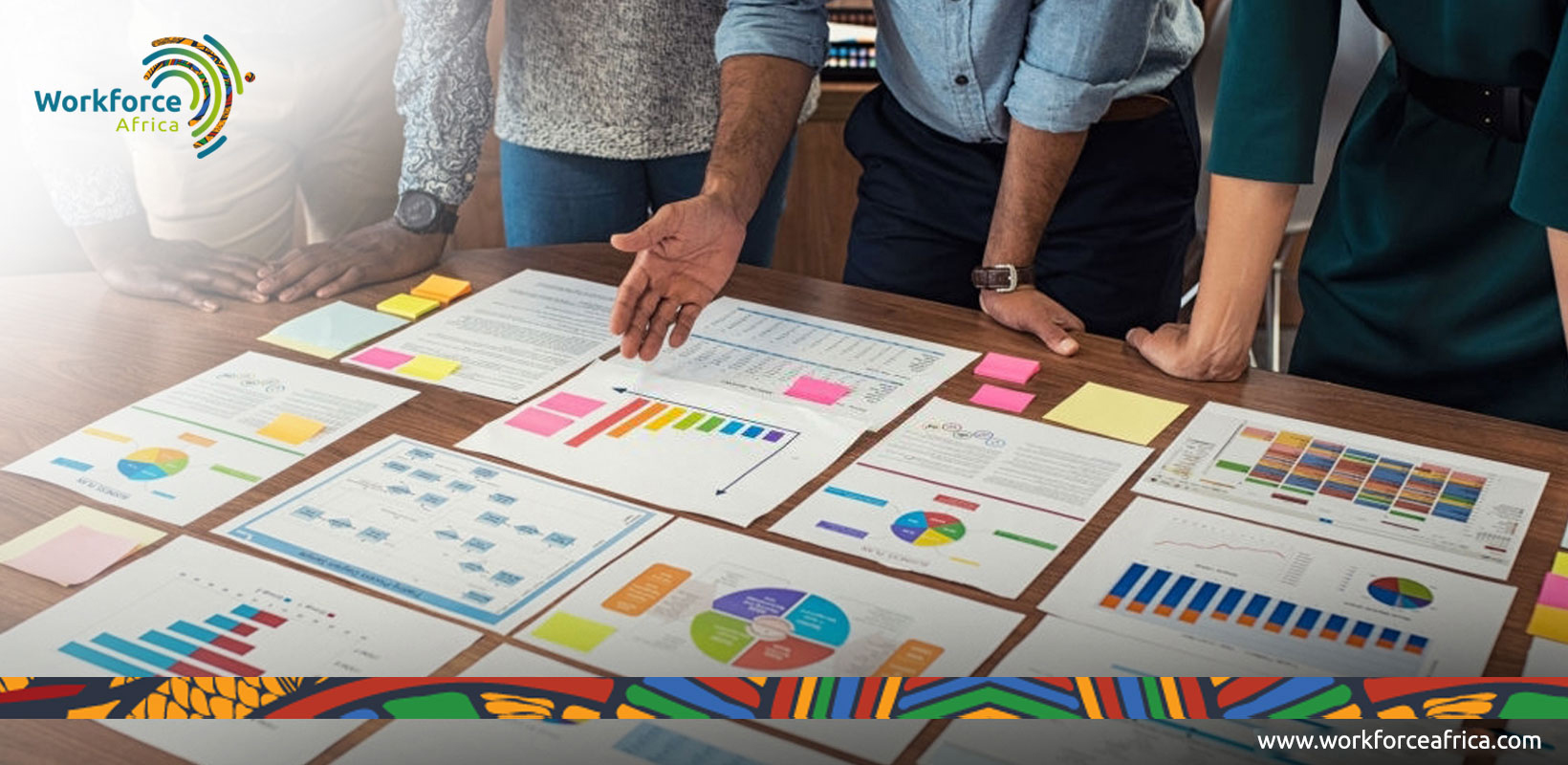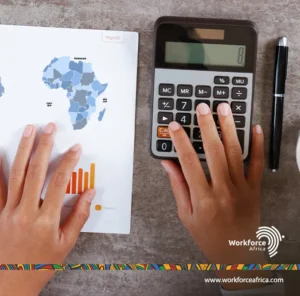International business expansion has become the new norm for organisations that are in search of a faster growth rate than they can get within their local markets.
It provides international businesses with the opportunity to gain valuable competitive advantage by diversifying their market, providing better access to talent, improving brand reputation, increasing revenue potential, and expanding their customer base.
However, when the time comes to make this future-defining move, the biggest question on the mind of stakeholders and business owners is “where next”?
Which markets offer our company the biggest growth opportunities? Where could we earn the highest return on investment? Doing business in Africa could be the best answer to both questions.
BRIC countries (Brazil, Russia, India, and China) were previously thought of as the global business havens by many organisations seeking new growth markets. Over time, BRIC markets turned out to be largely unsatisfactory; their economies reached a climax, and they continue to present high hurdles to entry.
As competition for growth in Europe, America, Latin America, and South-East Asia gets fiercer, organisations are beginning to seek new frontier markets. Quite understandably, they have set their sights on the emerging markets in Africa.
In recent times, Africa has received attention and investments from multinationals. This can be attributed to the following:
- Improving growth rates.
- Many lingering wars and conflicts have yielded to bureaucratic competence and democracy.
- Infrastructure and connectivity are gradually improving.
To put this recent economic improvement in context, In 2000, the economist magazine declared Africa as “hopeless” – the orthodox view at that time. In 2011, the magazine reviewed that evaluation to “rising,” and in March 2013, to “Aspiring.”
The seeds of Africa’s renaissance were already being rooted in 2000 but had not yet borne fruits. Today, the flowers are blossoming, and the fruits are ripening.
This blossoming African economy has equally translated into business success for over 400 African companies who now boast annual revenues in excess of $1 billion and over 700 more who report annual revenues in excess of $500 million.
A recent assessment of 360 organisations from 32 African countries by the London stock exchange also reveals an impressive average compound annual growth rate of 46% in 2019, up from 16% in 2018. The predictions for Africa’s growth over the next decades are also staggering.
As competition for growth in Southeast Asia and Latin America gets fiercer, companies seeking the next frontier market would do well to set their sights on Africa. Whether you represent a multinational company or an organisation that is just starting with international growth, business expansion and investments in Africa has a compelling appeal for a variety of reasons:
The African Population Is Fast-Growing and Urbanising

Africa currently has over 1.2 billion people and a greater population growth rate than any other continent. That’s over a billion potential ready customers, growing at encouraging rates waiting to be served by your products or services.
Even more impressive is the fact that more than 80% of Africa’s population growth over the next few decades is most likely to occur in the major cities, making it the fastest urbanising continent in the world.
Urbanisation increases employment rates and creates excellent business opportunities for investors to generate profit by providing the continent’s habitants’ needs.
Not only is Africa’s population growing, but the African people are getting richer too. The purchasing power and disposable income of African residents are improving across much of the continent, creating new business opportunities in the consumer market.
According to a recent study by Brookings institution, annual consumer spending across Africa is expected to reach $6.66 trillion by 2030, up from $4 trillion in 2015. This figure is one of the largest in the world.
These trends stimulate growth in a range of sectors where Africans have unmet needs, including food, pharmaceuticals, beverages, healthcare, education, and financial services. As the continent becomes more populous, organisations with an established presence in Africa will be better positioned to take advantage of burgeoning African markets.
They will have the local market knowledge, distribution channels, and connections to outperform competitors who failed to invest early.
Economic Growth Is Quickening
Although the global economy is slowing down, Africa’s growth predictions remain strong for the coming decade. Africa’s average annual GDP growth, which signifies an economy’s health, has consistently outperformed the global average and is likely to remain at least 6% until 2023.
If the UN’s projections are correct, 10 out of 20 of the world’s fastest-growing cities will be African by 2035. This growth potential signifies a growing nation with many areas for investment opportunities. The continent’s economy has also proven to be resilient to the ongoing pandemic-induced economic recession.
Recent history shows that many sub-Saharan economies were negatively impacted by commodity prices plummeting and weakened currencies in 2016 but rebounded by 2.6% in the last two years, proving that these economies can withstand such hits.
Africa Is Moving To Close Its Infrastructural Gaps
Poor infrastructure has always been regarded as one of the key impediments to investment and growth in Africa.
For example, nearly 600 million Africans lack access to electricity. However, while Africa’s infrastructure still lags behind other developing regions, significant progress has been made in recent years.
Since the beginning of this century, Africa’s annual investment in infrastructure has doubled to around $80 billion a year. Also, Africa’s current infrastructure projects pipeline includes $2.5 trillion worth of projects estimated to be completed by 2025.
As infrastructure improves, it would provide many African nations with the means of pulling themselves out of poverty.
With better logistics and trading networks, these countries would use/utilise their natural resources better, create huge revenue streams, improve stability, drive economic growth, and create a profitable business environment for investors.
Governments across Africa have also shown substantial commitments to partnering with private investors to improve their infrastructural deficits. This is evidenced by the burgeoning number of African countries partnering with Chinese investors to strengthen their nation’s infrastructure.
This represents a massive opportunity for investors and entrepreneurs with the imagination/capability to help solve Africa’s infrastructure challenges.
An Enabling Business Environment

According to the World Bank’s Doing Business Index released in 2019, five of the ten most-improved countries are in Africa. Approximately one-third of all recorded business-enabling reforms globally also occurred in Sub-Saharan Africa.
The ease of doing business in Africa has improved to the extent that many countries (including Rwanda, Kenya, and Morocco) now outperform India, Russia, and Brazil.
Improved political stability and deliberate efforts by many African governments have improved their business ecosystem, and as a result, private investors can now expect improved returns on investments.
A report by the United Nations Conference on Trade and Development (UNCTAD) states that between 2006 and 2011, Africa had the highest return rate on Foreign Direct Investment: 11.4%.
This is compared to 8.9% in Latin America and the Caribbean and 9.1% in Asia. The global figure is 7.1%. This made Africa the most profitable region in the world.
Not only is it becoming relatively more straightforward for external investors to expand or start up their business in Africa, but it’s also relatively cheaper than starting up a new business in Asia and Europe.
Land and real estate prices are somewhat more affordable, Labor is cheaper, and many of the associated costs of setting up a business are a lot lower in Africa than in other parts of the world.
The African Market Space Just Got Bigger
Multinationals were always sceptical about expanding into Africa due to the fragmented nature of African markets.
This single factor significantly reduced Africa’s standing/position relative to other global markets on intra-regional trade intensity, with intra-African trade accounting for just 16% of total African trade against 59% in Asia and 69% in Europe.
However, a new player has tremendous potential to defragment Africa economies and boost its markets’ productivity: the African Continental Free Trade Area (AfCFTA).
Signed in 2018, The African Continental Free Trade Agreement (AfCFTA) has established Africa as the largest free trade area globally by membership, with a market of over 1.2 billion consumers and a combined GDP of $2.5 trillion.
AfCFTA has been referred to as globalisation and economic game-changer because of its potential to transform African economies and considerably raise Africa’s global trade share while reinforcing its bargaining power in international trade negotiations.
Preliminary assessments support the treaty’s incredible growth and transformational potential. Early estimates suggest that Intra-African trade would increase by half within the decade — and possibly double that if trade facilitation, rather than just tariff liberalisation, is undertaken.
This means that an already enabling African business environment is about to get bigger.
Investors that invest in any country do so with the potential to operate in Africa as a whole – a continent the size of Europe, India, China, and the United States combined, with the freedom to trade and sell goods and services anywhere they like without trade restrictions of any kind.
Challenges of Doing Business in Africa

Some of the critical problems that companies need to be aware of are not ubiquitous to the African continent but have considerable business impact.
While substantial investments are being made to improve Africa’s current infrastructural deficits, businesses used to operating in more developed countries will need to adjust their expectations and put measures in place to confront African realities.
Multinational companies also need to invest in developing a better/deeper understanding of the African continent to take advantage of these opportunities successfully.
From our experience, most multinational companies spend the first few years trying to adapt and understand the African marketplace’s uniqueness. However, proactive businesses partner with capable African Allies to help them succeed across the continent.
Workforce Africa as Your Ideal Market Expansion Partner
There are many factors to consider before expanding into the African market space—but the process doesn’t have to constitute an insurmountable obstacle or a drain on your time and financial resources.
Partnering with an African market entry service provider like Workforce Africa is a cost-effective and competitive way to scale up quickly, easily, and compliantly in Africa. Here’s why:
1. Our Advisory services help you successfully navigate African Markets
With over 16 years of experience helping local and multinational businesses thrive in Africa, we have built quite an admirable local knowledge and industry expertise.
Partnering with us gives you unlimited access to the local knowledge required for success, provides you with result-focused answers, and aids your business in overcoming complex expansion challenges.
2. We help you test the market with less risk
Expanding your business to Africa comes with many unknowns. However, with a flexible solution like our market entry services, your organisation can access several African markets without making the long-term commitments that establishing international entities require.
If your organisation needs to leave a market unexpectedly, there are no additional fees or time commitments.
3. We help you with compliance and regulations
As many organisations have discovered in the past, the risk of inaccurate financial reporting, improper management of operational funds, and flouting labour laws multiplies when operating in Africa due to an increasingly complex and continuously changing regulatory environment.
Our dedicated team of professionals prioritises staying abreast of constantly changing rules and regulations in Africa’s major markets. This ensures that our clients remain fully updated on the regulatory landscape and operate in full compliance with applicable laws and procedures.
4. We provide you with qualified staff
Most African countries have an enviable labour force, but finding skilled workers can prove a bit difficult, and this is another area where you can rely on us.
Since our inception in 2004, We have recruited, assessed, trained, and outsourced over 500,000 professionals. We believe the right people are crucial to helping any organisation succeed in Africa, and as such, helping organisations get the right talent is not something we take lightly.
We understand African talent and leverage proven recruitment and assessment methods to ensure you get the right talent required to succeed in Africa.
5. We let you focus on what matters most – growing your business
With our local expertise and experience in delivering value with unmatched speed and precision, we ease your administrative burden, help mitigate the risks associated with operating in unfamiliar territories and allow you to focus on running your core business.
We can also cater to your travel arrangements, business set-up and logistics, vendor selection and procurement, payroll administration, background checks, and employer service services.
Ready for the next steps? Please schedule a consultation with our team today or call +234 903 194 6744 and let’s get started on your African expansion process/plan.





